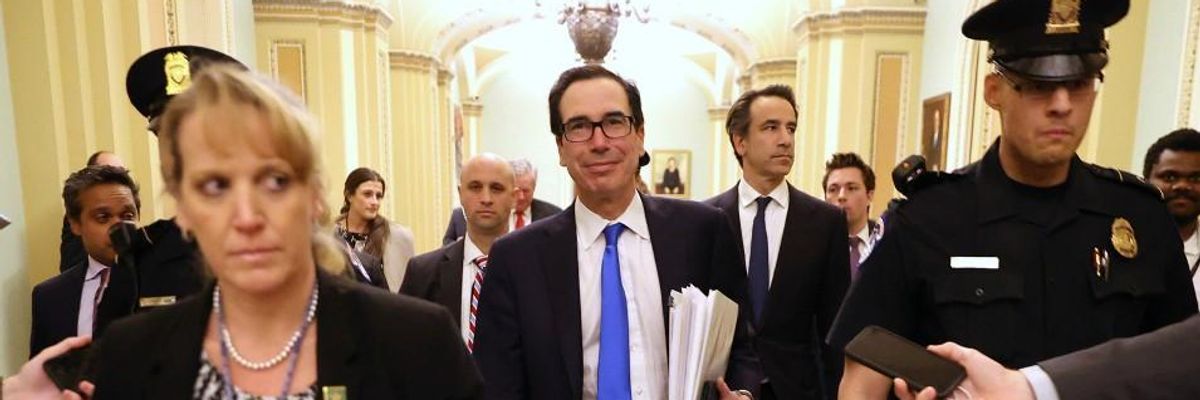The Trump administration in April quietly issued a sweeping waiver exempting members of Congress and other federal officials from ethics rules in order to allow them and their families to apply for small business coronavirus relief loans without facing conflict of interest reviews.
The existence of the ethics waiver was reported Friday by the Washington Post and met with alarm by good government advocates who warned the "blanket approval" from the Small Business Administration (SBA) opens the door to abuse of Paycheck Protection Program funds designed to help struggling small businesses stay afloat.
"The idea that the Small Business Administration can, without any review or publicity, secretly let all of its employees arrange loans for their family members or associates is outrageous."
--Josh Gotbaum, Brookings Institution
Scott Amey, general counsel with the nonprofit Project on Government Oversight, told the Post that "this is the exact time when we should be worried about government officials, even members of Congress, taking money out of the hands of others in need."
"Let's hope someone else is minding the store," added Amey, "because SBA seems more about speed and less about accounting for taxpayer dollars."
The Post noted that lawmakers and federal officials who own small businesses and want to apply for loans must typically be approved by the SBA's Standards of Conduct Committee.
"But in a rule the administration issued April 13," the Post reported, "the administration disclosed that the approval requirement had been suspended for all entities seeking funds from the $660 billion [Paycheck Protection Program] 'so that further action by the [ethics committee] is not necessary."
Josh Gotbaum, a guest scholar in the Brookings Institution's Economic Studies Program, told the Post he was "appalled" by the sweeping ethics waiver.
"The idea that the Small Business Administration can, without any review or publicity, secretly let all of its employees arrange loans for their family members or associates is outrageous," said Gotbaum.
The number of lawmakers and federal officials who have benefited from PPP loans is not yet known because Treasury Secretary Steve Mnuchin has resisted calls to release the information. In the face of backlash, Treasury and the SBA last week agreed to disclose the names of borrowers who received loans of $150,000 or more.
Politico reported last week that at least four members of Congress--Reps. Roger Williams (R-Texas), Vicky Hartzler (R-Mo.), Susie Lee (D-Nev.), and Debbie Mucarsel Powell (D-Fla.)--have "reaped benefits in some way from the half-trillion-dollar small-business loan program they helped create."
A spokesperson for Lee told the Post the congresswoman was not aware that her husband--the owner of Las Vegas casino company Full House Resorts--was interested in applying for PPP loans when she was pushing for casinos to be made eligible for the relief funds in April.
The SBA ultimately allowed casinos to apply, and Full House Resorts received two loans totalling $5.6 million.

